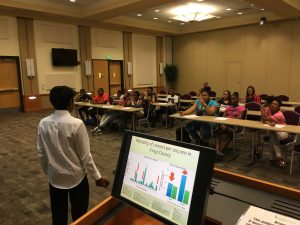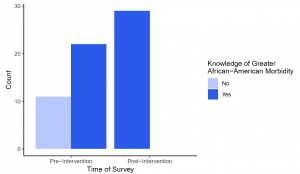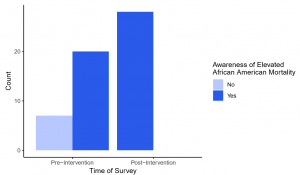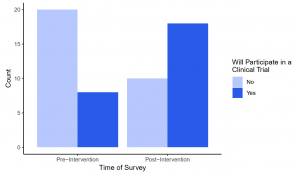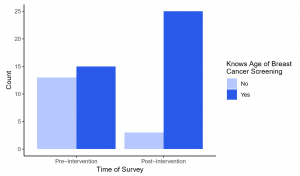One part of the survey and focus group was conducted here, in collaboration with the University of Maryland, Baltimore CURE Scholars Program. This program supports underserved students of color in Baltimore. For the past few years, we have designed and taught a health disparities curriculum for their students.
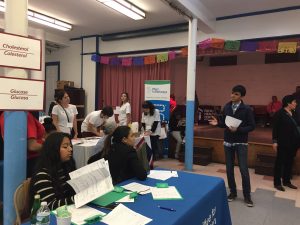
Another part of the survey and focus group was conducted in St. Jacobi Church in the Bronx. We partnered with the Consul General of Mexico and Pfizer RxPathways to hold a workshop at this health fair where we showed attendees the poor health outcomes in this majority-minority Bronx neighborhood. We also imparted the tools to help alleviate this disparity.
Outcomes Study
IRB Approved Surveys and Focus Groups Conducted by Team Health Disparity
With my team of student volunteers at Health Disparity, we designed and conducted a study to document the impact of our workshops. We consulted with public health professionals from across the country and extensively read public health literature in designing our survey (a sample is below). This survey was given before and after each workshop to see how health disparities attitudes and knowledge changed through our peer-to-peer intervention. We also conducted a focus group, where we asked students questions about a variety of topics ranging from health, wellness, activism and their communities. Both parts of this study were IRB Approved. This study was published in the peer-reviewed Journal of Dawning Research. Some results are below.
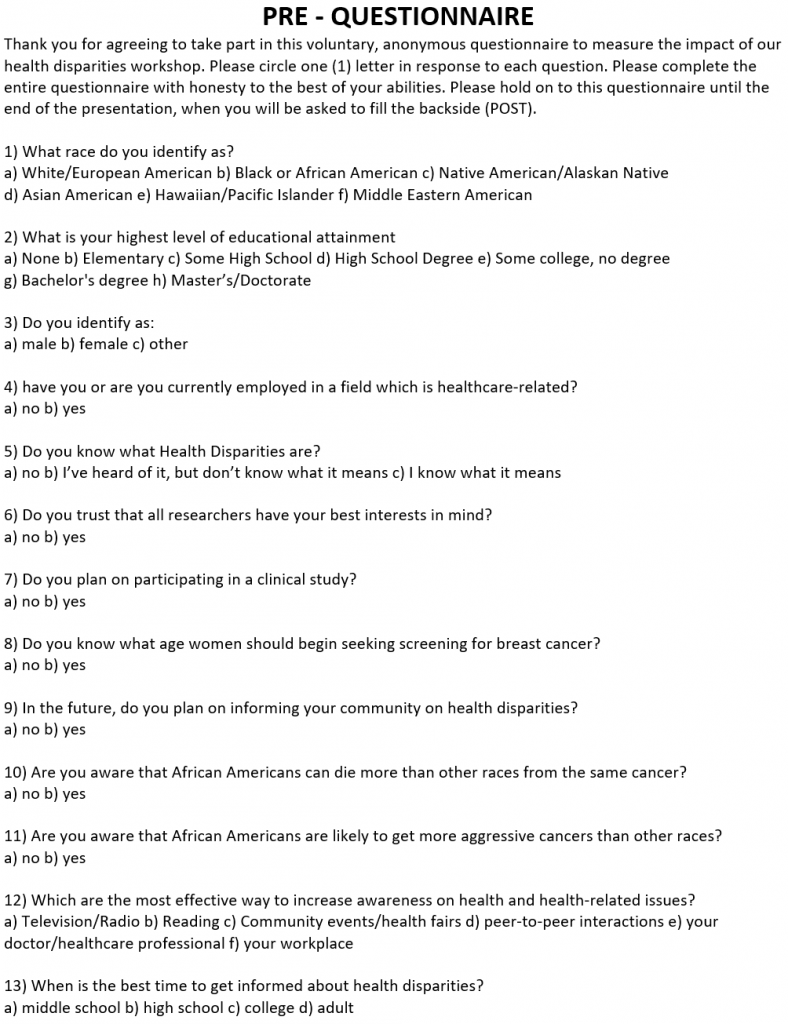
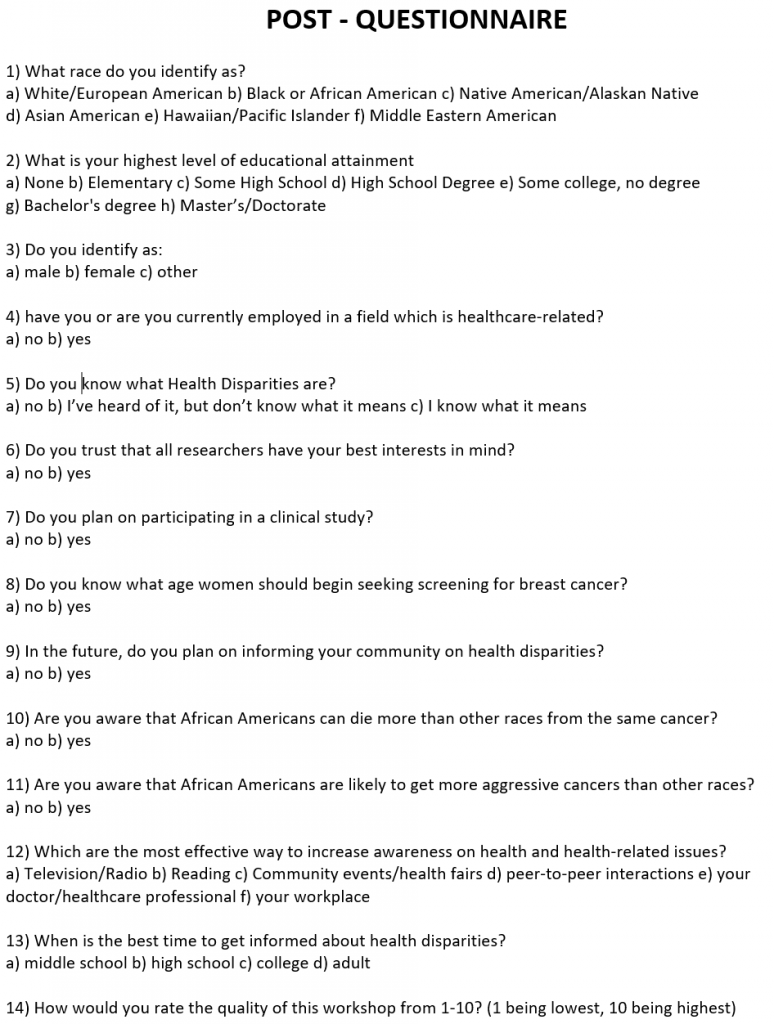
Pictured: Survey distributed to adults
9.2/10
Our score from student attendees since our workshops began in 2016
Our Results – Survey
Knowledge of Greater African-American Morbidity, p= .001
Both students and adults became unanimously aware of higher morbidity of certain diseases and cancers in minority groups after our workshop.
Awareness of Elevated African American Mortality, p=.01
After the workshop, both students and adults became unanimously aware of greater mortality of certain diseases and cancers within minority groups
Interest in Participating in Clinical Trials, p=.01
Historically, few clinical trials have been conducted with adequate minority particularization, leading to ineffective therapies
Interest in participating in clinical trials increased significantly after the workshop. This suggests our workshop can foster greater trust in researchers.
Knowledge of Breast Cancer Screening, p=.007
African-Americans get genetically aggressive breast cancer at a lower average age than whites. Therefore, it is critical that youth and adults are aware of when they should seek regular mammograms.
Breast cancer screening knowledge increased significantly after the workshop. This suggests our workshop can be powerful in reducing breast cancer health disparities, which lead to thousands of unnecessary deaths every year.
Our Results – Focus Group
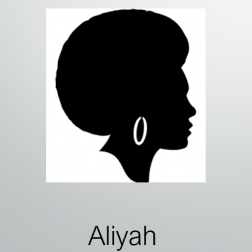
The Power of Stories
“Aliyah’s story was really helpful in outlining this problem.”
Students connected with representative stories shared during the workshop. These stories helped concertize the problems of health disparities. For example, we tell the story of Aliyah (pictured above), who misses chemotherapy appointments due to work and family life.

Social Media & Families
“I saw a post about the black health crisis one morning.”
Those students who were aware of health disparities before the workshop learned of the issue through social media posts. Others learned about it from family members, particularly mothers.

Activism
“Yes, I want to be an activist because I want to help my community, and make
sure everyone gets the healthcare they need!”
Youth interest in becoming a health disparities activist became uniformly positive after the workshop, particularly because the workshop leader was another youth. Students began brainstorming ways that they could harness their youth to make a change in their communities; for example, they could use their social media skills to make a viral PSA about breast cancer screening for African-American women.

Lack of Health Discussion Opportunities
“Why does hair fall out when you get cancer?”
When given the opportunity during a Q&A, students asked basic health information due to the lack of a safe space in their schools and communities to speak about health and wellness. Students reported that this health disparities workshop provided them the opportunity to ask their burning health questions.
